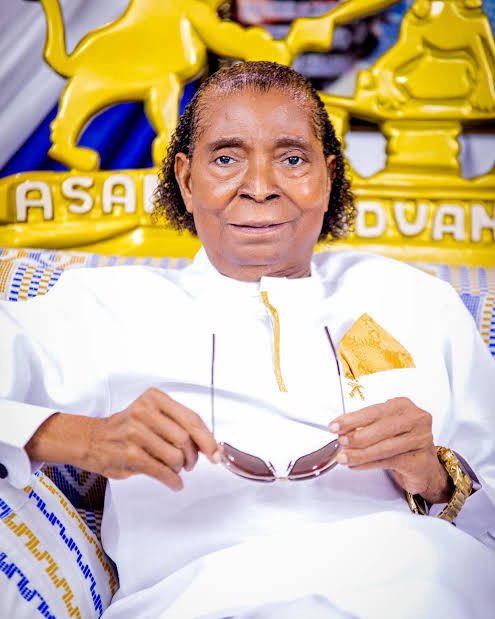People & Lifestyle
Why men with broken heart syndrome are more likely to die, according to experts

A 59-year-old man arrived at the Peking University First Hospital in Beijing for a procedure when he started having severe chest pain and shortness of breath.
Four months earlier, he had cancerous tumors removed from his bladder. Around his family, he tried his best to appear strong and avoided discussions of his health. Privately, his severe anxiety over the possibility of a cancer recurrence kept him awake at night.
Doctors said the man was experiencing takotsubo cardiomyopathy — also known as broken heart syndrome, as documented in a 2021 case study. The rare stress-induced heart condition has been observed primarily in women, but a study published in the Journal of the American Heart Association in May found that the illness may be more deadly for the men who get it.
Thought to be caused by extreme emotional or physical events — such as learning about the death of a loved one, winning the lottery or lifting a heavy sofa — takotsubo cardiomyopathy, or TC, occurs when the heart muscle is flooded with stress hormones, causing part of it to “freeze” in place. As the heart struggles to properly pump blood, symptoms resemble those of a heart attack, including chest pain, heart palpitations and irregular heartbeat.
The new study analyzed data from nearly 200,000 patients hospitalized for TC in the United States between 2016 and 2020. While women accounted for 83% of the cases, men were more than twice as likely to die from the condition — with a mortality rate of 11.2%.
“The differences between men and women are a very striking finding,” said study coauthor Dr. Mohammad Reza Movahed, a clinical professor of medicine at the University of Arizona in Tucson. “It raises a new, interesting question that should really be studied.”
Broken heart syndrome in men vs.
women
Similar to differences between men’s and women’s cardiovascular health more generally, the discrepancies in TC death rates are not well understood, Movahed said, especially because they counter trends in other heart diseases. It’s widely theorized, however, that differences in hormone levels play a role.
Stressful situations trigger the adrenal glands to release our fight-or-flight hormones, called catecholamines. They are meant to increase our blood pressure and raise our heart rate, but extreme levels can temporarily “stun” cells in the heart’s tissue, leading to TC, Movahed explained.
Men are thought to produce more catecholamines during stressful situations compared with women, possibly leading men to present with more severe cases of TC, he suggested.
Estrogen, a sex hormone produced at higher levels in women, may also have a protective effect on the cardiovascular system, making it easier to manage an extreme influx of catecholamines and reducing the risk of severe complications from TC, said Dr. Louis Vincent, a noninvasive-cardiology research fellow at the University of Miami, who coauthored a similar, multiyear study investigating discrepancies in men and women who had TC. Vincent was not involved in the new study.
Beyond biological differences, social factors may play a role as well.
“Most (physicians) know about takotsubo, but they may think of it as a disease just affecting women, so the diagnosis might be overlooked in men,” said Dr. Deepak Bhatt, a cardiologist and the director of Mount Sinai Fuster Heart Hospital who was not involved in the study. “With misdiagnosis, care is delayed, and that can sometimes lead to worse outcomes.”
Men may also seek care at a later stage of illness, believing that their symptoms are manageable or may pass, said Dr. Alejandro Lemor, an assistant professor of interventional cardiology at the University of Mississippi Medical Center who was also not involved in the study.
Deadly complications from TC include blood clots, stroke, cardiac arrest and heart failure, Lemor said. If the condition is caught early, medications can reduce the risk of having these complications, restore proper heart function and allow for full recovery within weeks, he added.
Higher mortality rates in men need further study
Movahed’s team was able to factor for important variables like age, race, income, chronic lung disease, hypertension and diabetes in the findings.
However, there was no patient data on other comorbid diseases, such as a history of stroke or the presence of a Covid-19 infection, Vincent said.
Additionally, the new study included in-patient diagnostic data only for those hospitalized with TC, so those who received outpatient care or died later from complications outside the hospital were likely not counted in the analysis, Movahed noted.
To establish a firmer explanation for the differences in mortality rates between men and women and further test treatment methods, a more detailed dataset would be needed, Vincent said.
“People should be aware in studies like this, we’re presenting findings that are based on diagnostic codes, and we’re not looking at patient procedures or lab results,” Vincent said. “But it’s powerful in the sense that it lets us look at large populations and look at trends. And I think that this trend of a higher mortality in men is worth taking a deeper look into.”
Don’t try to ‘tough it out’
Sudden, severe chest pain or shortness of breath should always be treated as a medical emergency, warned Bhatt, who is also a professor of cardiovascular medicine at the Icahn School of Medicine at Mount Sinai in New York City.
“It’s not a time to tough it out at home or get on the internet to figure it out. … Don’t try to track down your primary care provider. Call emergency services,” Bhatt said. “Time matters. By winning those few hours, you could save yourself irreparable damage to your heart.”
Symptoms following physical stressors — a common cause of TC in men — should not be ignored, Movahed said, especially preceding medical events such as asthma attacks, seizures or complications from drug use.
And while TC is caused by sudden stress, Bhatt said that managing chronic stress with daily meditation or exercise can lead to better cardiovascular health overall while giving you routines to fall back on in unexpected situations.
cnn.com
People & Lifestyle
From Bekwai To The World: The Biography Of Apostle Kwadwo Safo, The Kristo Asafo Founder And Kantanka Automobile Innovator

Early Life And Education
Known as the “Star of Africa,” Apostle Dr. Kwadwo Safo Kantanka is a man whose life remarkably combines philanthropy, invention, and religion. He was born on August 26, 1948, in Bekwai, Ghana’s Ashanti Region, to petty merchant Madam Akosua Amoanimaa and farmer Opanin Yaw Safo. He gained the humility and curiosity that would ultimately determine his fate from his humble origins.
Kwadwo Safo attended the Ghana Technical Works Institute in Kumasi to pursue technical training following his completion of elementary and secondary school. He worked for companies including VALCO, West Africa Metals, and the French Africa Company in his early years as a welder and mechanic. He gained a solid foundation in engineering and mechanics from these experiences, but his life quickly took a different turn.


READ ALSO: BREAKING: Apostle Kwadwo Safo Confirmed Dead
Ministry And The Kristo Asafo Mission
Kwadwo Safo was called by God to devote his life to gospel preaching in 1969. On February 3, 1971, two years later, he established the Kristo Asafo Mission in Accra. In Accra New Town, what started out as a tiny prayer group swiftly expanded into a vibrant Christian ministry.
For fusing spirituality with real-world empowerment, Kristo Asafo gained notoriety. Apostle Safo placed a strong emphasis on discipline, independence, and applying one’s faith to day-to-day activities. The church grew throughout Ghana and even reached Ghanaian communities overseas under his direction. He was more than just a preacher to his followers. He served as a mentor who pushed them to further their spiritual development while also pursuing education, skills, and entrepreneurship.

Innovations And Industry
The vision of Apostle Safo went much beyond the pulpit. He started creating local car prototypes in the 1990s in an effort to demonstrate Ghana’s ability to compete on a worldwide scale. In 1998, his business, Kantanka Automobile, manufactured its first saloon automobile. Later models, such as the Onantefo series, demonstrated robustness, contemporary style, and regional inventiveness. Kantanka Automobile is a great representation of Ghanaian ingenuity today.
However, his inventiveness extended beyond cars. Additionally, Apostle Safo has created and produced locally manufactured robotics, television sets, sound systems, and even military-grade equipment. His creations demonstrate his conviction that Africans can use their own skills and resources to address their own problems.
Education And Human Development
Apostle Safo founded the Apostle Safo School of Arts and Sciences (ASSAS) in Awoshie, Greater Accra, because he believed that education was the key to the advancement of the country. The school fosters the development of young brains into leaders and innovators by providing courses in science, business, visual arts, and home economics. His legacy of developing ability via knowledge and skills has been carried on by the numerous successful careers of his students and protégés.



Philanthropy And Social Impact
An integral part of Apostle Safo’s work has always been philanthropy. On a regular basis, usually around his birthday, he gives money, food, and clothing to widows, orphans, and disadvantaged groups. He received a great deal of praise for his August 2024 payment of GH₵42,000 toward the medical expenditures of 14 female patients at the Komfo Anokye Teaching Hospital. Because of his scientific endeavors and social interventions, he has become a father figure to many.

Recognition And Legacy
The accomplishments of Apostle Safo have received recognition on a national and worldwide level. In the UK, he was given the GUBA Innovative Pioneer Award in 2017. In recognition of his contributions to science and engineering, he has also received academic distinctions, such as the title of Emeritus Professor.
Nevertheless, he has publicly bemoaned the fact that his efforts are sometimes underestimated in Ghana in spite of these honors. He has attacked the tendency to favor imported items over domestically produced ones, which hurts homegrown businesses. But his determination is unwavering. He remains committed to his goal of an independent Ghana, which drives his innovation, preaching, and charitable endeavors.


Conclusion
Apostle Kwadwo Safo is not just an inventor or a preacher. He is a trailblazing intellectual who has demonstrated how compassion, science, and faith can all work together to change society. He has broken down barriers and changed the lives of many people, starting from modest beginnings in Bekwai and going on to lead a church, an automobile firm, and an educational institution. His tale serves as a reminder to Ghanaians and all Africans that greatness starts with a vision and is fostered by tenacity, imagination, and an unwavering faith in God.
People & Lifestyle
The Fascinating History Of Wigs And Hair Extensions

Wigs and hair extensions may look like modern beauty essentials, but their roots go back thousands of years. Across cultures and generations, they have been worn for protection, style, identity, and even spirituality. Their story shows us how beauty and tradition are deeply connected, constantly evolving with time.
Ancient Egypt, Where It All Began
The earliest records of wigs date back to Ancient Egypt around 2700 BC. Egyptians shaved their heads for hygiene, but wigs were used to protect against the sun and add a touch of elegance. Wealthy citizens wore wigs decorated with beads, gold, and oils, while simpler versions were worn by the less privileged. This trend spread to Ancient Greece and Rome, where wigs became a symbol of beauty and social status.



Royal Courts And European Fashion
In the 16th century, wigs returned to the spotlight when Queen Elizabeth I of England popularized them at court. By the 17th century, King Louis XIV of France introduced the large powdered wig, which quickly became fashionable across Europe. These wigs were not only about appearance, they carried political and social weight. Judges, lawyers, and politicians wore them as symbols of authority, and in some countries this practice continues today.


From Victorian Elegance To Modern Glamour
By the 19th century, wigs became less common, but hair extensions rose in popularity. Victorian women used hairpieces to achieve fuller hairstyles. In the 20th century, wigs found a place in theater and film, helping performers transform instantly. The 1960s and 1970s saw wigs move into mainstream fashion, with celebrities embracing them as tools of self-expression. Synthetic fibers made wigs affordable and widely accessible, allowing more people to experiment with new looks.


Beyond Fashion And Style
Wigs and extensions have always held cultural and spiritual importance. In Orthodox Judaism, married women wear wigs, known as sheitels, for modesty. In many African cultures, wigs and braids are not just hairstyles but powerful symbols of heritage, age, and social standing. They are often used during traditional ceremonies to represent ancestry, identity, and pride.


Technology, Media, And A Global Industry
Today, wigs and extensions are more advanced and natural-looking than ever. Lace-front wigs, clip-ins, and high-quality synthetic fibers allow for effortless transformations. Social media and celebrity culture have also fueled demand, turning wigs into a billion-dollar global industry. However, discussions around ethical sourcing of human hair continue, raising questions about fairness and sustainability in the beauty market.



Wigs In Health And Confidence
Beyond fashion and tradition, wigs play a vital role in healthcare. Many people experiencing hair loss due to medical conditions such as alopecia or chemotherapy treatments rely on wigs to restore confidence and a sense of normalcy. In this way, wigs are not just about beauty, they provide emotional support and dignity during challenging times. The growing variety of natural-looking options ensures that individuals can find styles that truly reflect who they are.


The Future Of Hair Innovation
Looking ahead, technology will continue to shape the wig and extension industry. From 3D-printed wigs to eco-friendly synthetic fibers, innovation is making products more sustainable and personalized. Designers are also blending cultural traditions with modern fashion to create new trends that celebrate both heritage and creativity. The story of wigs and extensions is far from over, and the next chapter promises even more exciting transformations.


A Timeless Story Of Reinvention
From the deserts of Ancient Egypt to fashion runways and online platforms, wigs and hair extensions have never gone out of style. They have adapted to every era, reflecting beauty standards, cultural traditions, and personal expression. Their history reminds us that hair is more than appearance, it is identity, heritage, and creativity woven together.


People & Lifestyle
The Surprising History Of High Heels And Their Origins

When people think of high heels today, the image that often comes to mind is one of women’s fashion, glamour, and elegance. Yet the history of high heels is far more complex. In fact, these shoes were first created for men, serving practical, cultural, and political purposes long before they became linked to femininity.
The earliest evidence of high-heeled footwear dates back to 10th-century Persia. Cavalry soldiers wore shoes with elevated heels to keep their feet secure in stirrups while riding. The design was not about style but survival, giving riders better balance and control in battle. This functional footwear later traveled to Europe, where it quickly acquired new cultural meaning.

By the 16th and 17th centuries, European men had adopted high heels as a symbol of wealth, masculinity, and social rank. Height was strongly associated with authority, and heels offered a way to look taller and more imposing. King Louis XIV of France, famously known as the “Sun King,” wore elaborately decorated red heels, a privilege he restricted to his court as a sign of power and exclusivity. Heels became an essential part of noble fashion, with their height directly reflecting social standing.

High heels also carried a sense of gender fluidity in their early history. Both men and women wore them in European courts, though the designs differed slightly. While men’s heels were often heavier and sturdier, women’s were more slender and decorative. They were seen less as feminine accessories and more as unifying symbols of wealth and privilege.

The shift came during the 18th century, when changing ideas about gender roles influenced fashion. Men began moving toward more practical and understated clothing, abandoning flamboyant garments and footwear. Women, on the other hand, retained high heels as markers of elegance and sophistication. Over time, this association deepened, and by the 19th century, high heels were firmly considered women’s fashion.

Today, high heels remain one of the most iconic and controversial items of clothing. While many wear them for style, beauty, or professionalism, they have also sparked debates about comfort, health, and gender expectations. Yet their surprising history reminds us that what we now see as a symbol of femininity was once created for war, adopted by kings, and used as a proud marker of masculinity and power.

-

 News5 months ago
News5 months agoGH¢49m Spyware Scandal: Ex-NSB Boss’s Claims Lack Credibility – Bright Simons
-

 Opinion5 months ago
Opinion5 months agoA LETTER TO GES
-

 Showbiz5 months ago
Showbiz5 months agoBogo Blay – Woman (Produced By FimFim)
-

 Showbiz5 months ago
Showbiz5 months agoKofi Kinaata Honoured with “Youth in Entertainment” Award at 2025 Millennium Excellence Awards
-

 Sports5 months ago
Sports5 months agoEl Clásico Thriller: Barcelona Edges Real Madrid 4–3 in Seven-Goal Spectacle
-

 Showbiz5 months ago
Showbiz5 months agoWebz – Odo | MP3 Download
-

 News5 months ago
News5 months ago‘Not Chosen by Merit’ – Ghanaian Prophet Predicts Short Papacy for Pope Leo XIV
-

 People & Lifestyle5 months ago
People & Lifestyle5 months agoThe differences between ‘I love you’ and ‘I’m in love with you’
















































